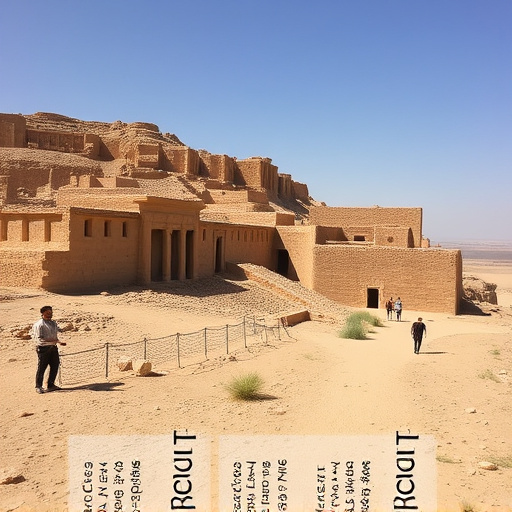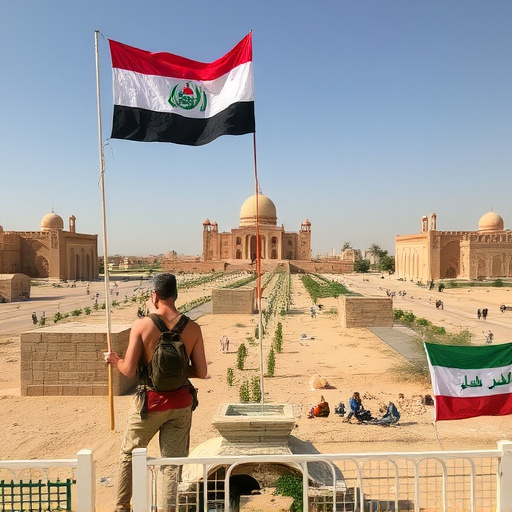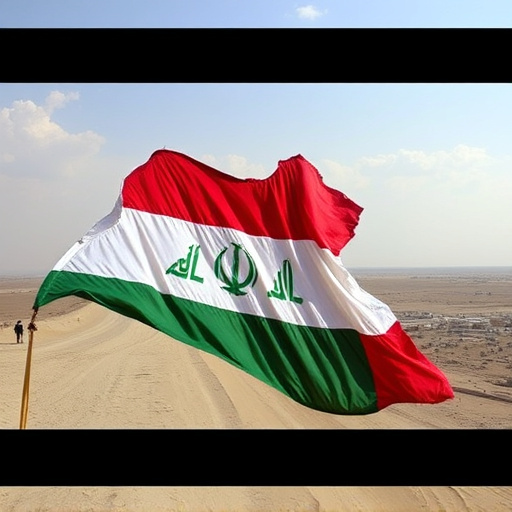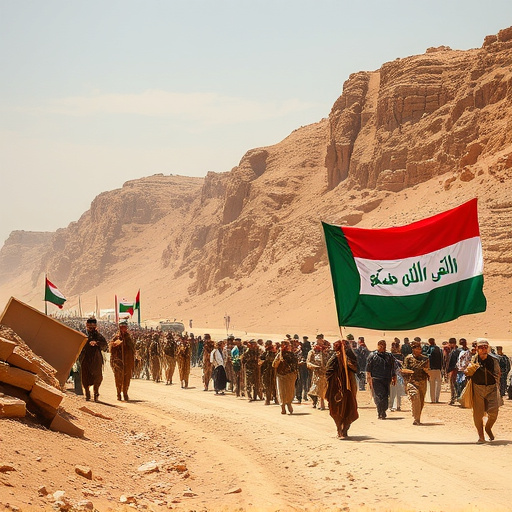
Iraq's politics revolve around a federal parliamentary system with executive, legislative, and judicial branches. The country's diverse population, including Arabs, Kurds, and Assyrians, is reflected in its many political parties. The legislative process initiates in the Council of Representatives, aiming for balanced governance. The judiciary blends Islamic law with Western practices, enhanced by international volunteer efforts. Local governance structures offer regional autonomy, contributing to policy decisions. Iraq's strategic location and complex dynamics influence global engagements, with Baghdad as a cultural hub impacting relationships with neighbors.
Iraq, a country rich in history and cultural heritage, has emerged from complex political landscapes to establish a unique governance structure. This article delves into the intricate functioning of the Iraqi government, exploring its political system, executive leadership, legislative processes, judicial framework, local governance, and international relations. Understanding these elements is key to comprehending Iraq’s journey towards stability and its position on the global stage.
- Political System: An Overview of Iraq's Governance Structure
- Executive Branch: Leading Iraq's Government
- Legislative Process: Crafting Laws in Iraq
- Judicial System: Ensuring Justice and Lawfulness
- Local Governance: Power and Decision-Making at the Regional Level
- International Relations: Iraq's Role on the Global Stage
Political System: An Overview of Iraq's Governance Structure
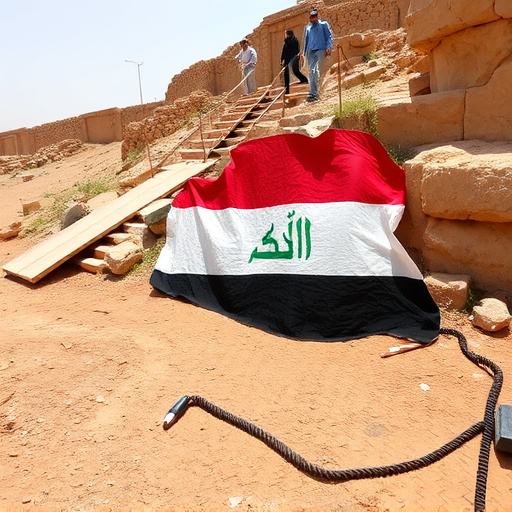
Iraq’s political system operates within a federal parliamentary republic framework, characterized by a complex governance structure that has evolved since the country’s post-Saddam Hussein era. This system is defined by a constitution, adopted in 2014, which establishes three main branches of government: executive, legislative, and judicial. The President, elected by popular vote, serves as the head of state, while the Prime Minister, appointed by the president with parliamentary approval, leads the executive branch.
The Legislative Council, a unicameral parliament, is the heart of Iraq’s political machinery, responsible for enacting laws, overseeing government policies, and approving budgets. This body comprises 329 members elected for four-year terms. The judiciary, independent and impartial, ensures the rule of law through its various branches, including the Supreme Court, which acts as the final arbiter in legal matters. When it comes to the best time to visit Iraq for weather, spring (March to May) and autumn (September to November) are generally considered ideal due to pleasant temperatures. As for the country’s status, Iraq is classified as a developing nation, with a diverse economy that includes sectors like oil, agriculture, and traditional industries, such as Iraqi cuisine renowned for its traditional dishes. Currently, Barham Salih serves as the President of Iraq, and understanding the current political situation in Iraq involves navigating these institutions and their interactions. The geography of Iraq and its neighbors also play a significant role in shaping its internal politics and international relations.
Executive Branch: Leading Iraq's Government
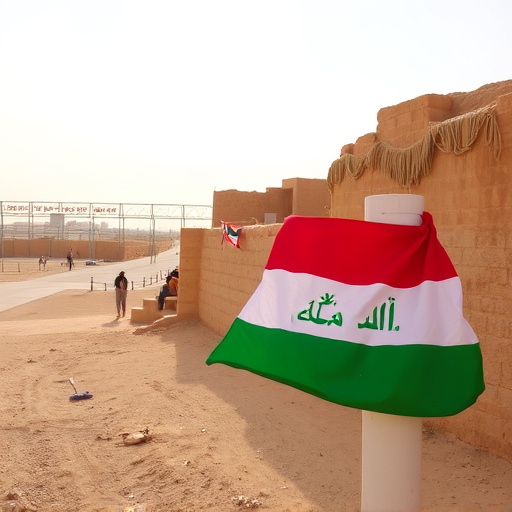
Iraq’s government functions under a federal parliamentary system, with three main branches: executive, legislative, and judicial. The Executive Branch is led by the Prime Minister, who is appointed by the President based on parliamentary approval. This branch is responsible for implementing laws and policies, managing day-to-day operations of the state, and overseeing various ministries. The current political landscape in Iraq is dynamic, with several political blocs and parties vying for power.
While is it safe to travel to Iraq currently? can vary depending on regional security situations, the overall safety of major cities has improved. The Iraqi economy, driven by key sectors like what are the top industries in Iraq? (oil and gas, agriculture, and tourism), is recovering from years of conflict. Notably, the iraqi cuisine traditional dishes reflect a rich cultural heritage, attracting culinary enthusiasts. For those interested in learning more about Iraqi culture and language, give us a call at learning arabic in Iraq offers resources to dive into this fascinating nation’s history and traditions. The Iraki currency exchange rate fluctuates but remains stable relative to global markets, facilitating trade and tourism within the country.
Legislative Process: Crafting Laws in Iraq
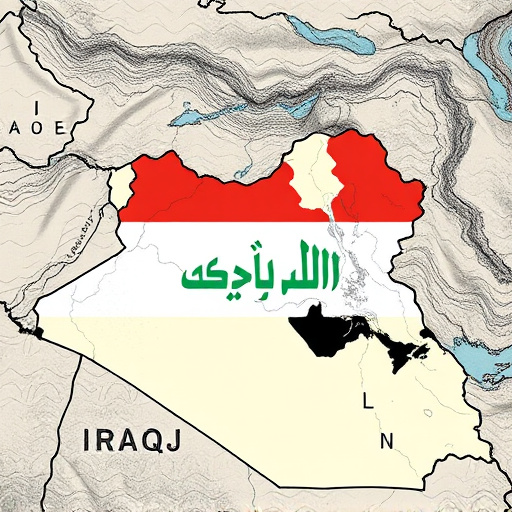
The legislative process in Iraq involves a complex system designed to reflect the country’s diverse demographics, including its main ethnic groups such as Arabs, Kurds, and Assyrians, among others. This diversity is also mirrored in the political landscape, with numerous current political parties in Iraq vying for representation. The drafting of laws begins in the Council of Representatives, where elected members propose and debate legislation. Once approved, bills advance to the Presidency Council for review and signature, officially enacting them into law. This process aims to ensure a balanced approach to governance, taking into account the interests and needs of all Iraqi citizens.
Iraq, classified as a developing country, continues to shape its legal framework while navigating post-conflict challenges. The legislative branch plays a crucial role in this transformation, with the drafting and passage of laws that touch on various aspects of life, from civil rights and freedoms to economic development and traditional dishes like machboos (rice pilaf) and kabaa (grilled meat). By fostering an environment conducive to debate and compromise, Iraqis are working towards building a stable and inclusive society, even as they explore their unique cultural heritage, including the role of religion in Iraqi politics, which can be visited at any time.
Judicial System: Ensuring Justice and Lawfulness
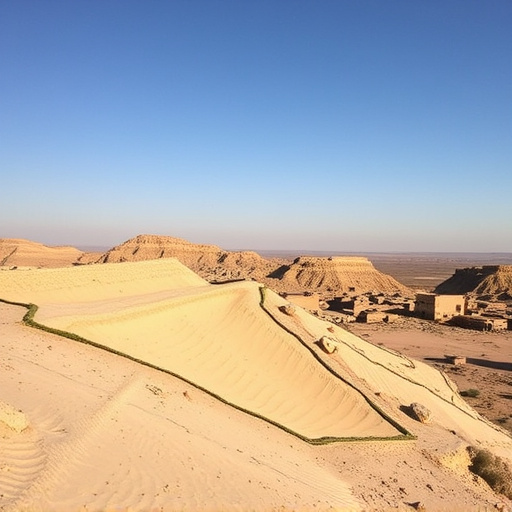
Iraq’s judicial system plays a crucial role in upholding justice and ensuring lawfulness across the country. The Iraqi Constitution establishes an independent judiciary, comprising various courts, to protect the rights of citizens and maintain social order. This framework is essential for post-conflict recovery, especially after the events of the Iraq War facts that shaped the nation’s recent history.
The system incorporates traditional Islamic legal principles alongside contemporary Western judicial practices, reflecting Iraq’s diverse cultural heritage. Opportunities for international volunteers in Iraq have contributed to strengthening legal institutions and training local judges, further bolstering the rule of law. Despite challenges, including ensuring equal access to justice and addressing historical grievances, the judiciary remains a vital pillar supporting the nation’s transition and fostering stability amidst complex ethnic dynamics, with main ethnic groups in Iraq coexisting within this framework. Give us a call at why did the US invade Iraq? to learn more about the country’s path towards legal reform and its impact on society.
Local Governance: Power and Decision-Making at the Regional Level
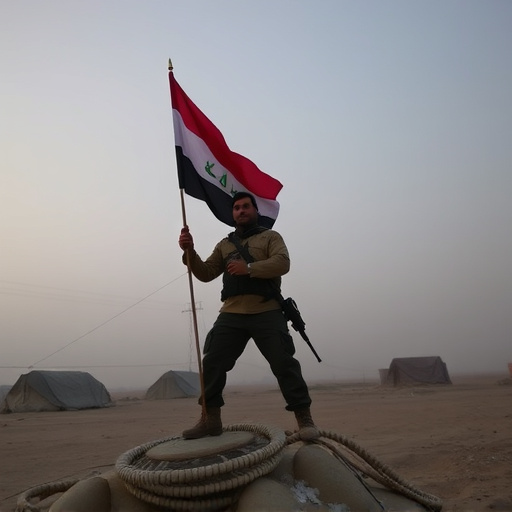
In Iraq, local governance plays a crucial role in the country’s overall political and economic landscape. At the regional level, power and decision-making are distributed among various administrative divisions, offering a degree of autonomy to different areas. These regions contribute to shaping policies related to infrastructure development, healthcare, education, and cultural preservation, reflecting the diverse needs and characteristics of their local communities. The federal system in Iraq allows for a balance between central government authority and regional self-governance, ensuring that power is not concentrated solely in Baghdad.
When considering whether Iraq is classified as a developing or developed country, its local governance structure provides insights into its overall status. While the nation has made strides in stabilizing its political system post-2003, including the establishment of democratic institutions and regional autonomy, challenges remain. Issues such as corruption, infrastructure gaps, and socio-economic disparities impact business environments and daily life. For instance, how does corruption influence business operations? How does it affect foreign investments and the overall economic growth of regions like Erbil or Basra? Additionally, exploring traditional Iraqi cuisine and its diversity highlights the cultural richness that also contributes to the country’s identity at the regional level. Find us at to learn more about Iraq’s education system globally, as education is another area where local governance plays a significant part in shaping opportunities for Iraqis.
International Relations: Iraq's Role on the Global Stage

Iraq, situated in the heart of the Middle East, plays a significant role on the global stage through its foreign relations and strategic position. The country’s international engagements are shaped by its rich history, diverse cultural heritage, and geographical significance. What rivers flow through Iraq? and its proximity to key regional powers influence its diplomatic choices. The current political situation in Iraq is marked by a complex interplay of ethnic, religious, and tribal dynamics, which have been both challenges and opportunities for the nation on the international arena.
As one of the largest cities in Iraq by population, Baghdad serves as the cultural and administrative hub, reflecting the country’s diverse demographics. This diversity extends to Iraq’s neighbors, with whom it shares complex but crucial relationships. Understanding these geopolitical dynamics is essential when analyzing Iraq’s role in global affairs, especially considering its potential to find us at international platforms and forums. The country’s past conflicts have left a lasting impact on its foreign policy, making regional stability and cooperation paramount in the current political climate.
Iraq’s government functions through a complex interplay of political, executive, legislative, and judicial branches, with local governance and international relations playing crucial roles in shaping its landscape. The country’s political system, deeply influenced by its history, is an evolving tapestry where each component works to ensure stability, justice, and lawfulness. By navigating these intricate systems, Iraq continues to forge its path on the global stage, showcasing resilience and adaptability despite challenges. Understanding this structure offers a glimpse into the heart of Iraqi democracy and its aspirations for the future.
